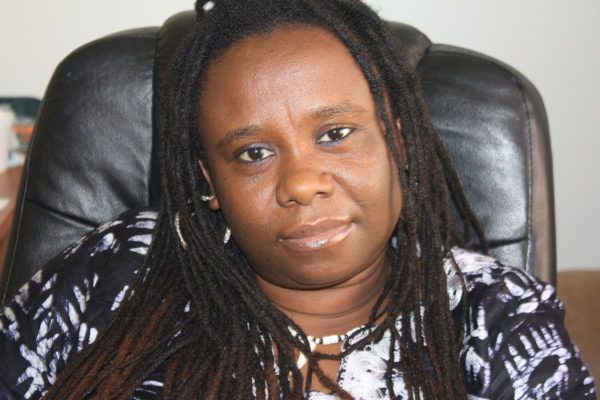
Unoma Azuah teaches writing at the Illinois Institute of Art, Chicago. In 2011 she was listed as one of the top professors at small private colleges in the United States in the online publication, Affordable/Private Colleges and Universities in the United States. A prolific author, Azuah has been a guest lecturer at Yale University, Connecticut (USA), Queens University, Kingston (Canada), Maynooth University (Ireland), University of Cape Town (South Africa), and State University of New York (SUNY), USA. Her research and activism focus on Lesbian, Gay, Bisexual and Transgender (LGBT) rights in Nigeria. Her latest work is Blessed Body: Secret Lives of LGBT Nigerians. She has won awards such as Hellman/Hammett Award, the Urban Spectrum Award for her debut novel, Sky-high Flame, and the Snyder-Aidoo Book Award for her second novel, Edible Bones.
Umezurike
The poem “The Shedding of Blood” alludes to the poet persona’s object-choice and female sexual autonomy. It is also about her period and her ovaries “set on a war/of fire and stones.” She is in pain and needs succour, yet her tone is defiant. She will not give in to heteronormative sex. I find your use of this neologism “Wooman” very productive. What inspired it? Can you speak more about it?
Azuah
The woman’s body is controlled by her anatomy in a major way. It almost feels as if my body reminds me that it is time to have sex, get pregnant and shed the blood of non-activity. At least, that is the way I look at it. I think I am often at war with the inconveniences of the woman’s body. So this monthly shedding of blood does not just remind me what it takes to stop the bleeding for some months, it also alerts me to my age. I guess, this can be attached to the term “biological clock.” In spite of these cyclic reminders, I ignore it because I see no part in it, even when my body has been structured for certain purposes. For instance, I crave sex, but I will not have it with any man. I ovulate, but I will not utilize my ovaries/eggs for pregnancy. So no heteronormative sex and no heteronormative life because that is not me. Perhaps, I am resisting the restrictions of being a woman in a micro and macro context. When I think of humankind, I think of the woe that has befallen the WOEman when her composition dictates how she lives her life and ultimately, maybe, her destiny. What inspired the poem is the excruciating pain I have while on my menstrual cycle. It can be so devastating that I will be forced to stay indoors all day and cancel all plans for the day.
Umezurike
How does a poem start for you? Do you have a concrete image or an idea in mind, or do you start a poem by tinkering with a few words, expecting them to cohere into something of meaning?
Azuah
I do both, depending on the situation. The process of writing a poem for me starts with a flash or an idea, depending on what triggered the urge for me to write. In other words, my surroundings and lingering thoughts fuel and feed my inclination to write a poem. Sometimes I write because I am bothered about something. In that way, writing the subject or issue in the form of a poem purges me of that pain or that joy, or even that overwhelming emotion. The idea does not come as a complete package. I carry ideas around in my head for a few days or weeks. Sometimes, I carry these ideas for months. It is almost the same as the process a python takes to digest a massive meal. The manner of ingestion and assimilating that topic could take days or weeks, and that is the same process I apply to birth a poem and any creative piece. In that course, I come back to the poem to flesh out, re-arrange and polish till it feels complete because writing is re-writing. All that to say, like any fine art, the process of writing a poem or creating is not easy.
Umezurike
The rhythm in “Stations of the Core: My Life in Three Movements” is so energetic, all but turbulent, as is the imagery. There are animist references, but the title alludes to the Catholic Stations of the Cross – sufferings, sorrows, sacrifices. I like this stanza:
She taught with chalk in her eyes
Shaded her eyes with white dust
The white eye of the town stared at her
But she was saved from the heave of the day
How do you decide on an imagery that appeals to you? Is there a self-conscious pattern in the image-making process? I also notice a lot of elemental imagery in some of your poems. Bird images, too. What is it about thunder, lightning, storm, fire and bird that fascinate you?
Azuah
I spent a chunk of my childhood in Umunede, a small town close to Agbor in Delta state. It was a highly animistic society where curses and charms are conveyed in both abstract and concrete ways. I also spent a great deal of time with my maternal grandmother in Asaba. She introduced me to the cosmology of the Asaba people and this included their strong faith in their river Goddess called Onishe. She had such glowing attributes about Onishe that I fell in love with this Goddess. However, when I went to a Roman Catholic High school in Nsukka, my belief in Onishe was challenged by my fellow Catholics because she was called a demon and not a God by some of these Christians. I grappled with these opposing views. The one way I was able to accept Onishe and reconcile her existence with my Christian faith was to liken her to Mary, the mother of Christ. We have been conditioned and brainwashed into believing that everything about our traditional religion is evil and demonic. The present Christian frenzy that is taking place in Africa is unfortunate. I call it madness. These prosperity and fanatical Christians have pretty much on the path of destroying every African religious tradition we hold dear. All that to say, I grew up knowing traditional concepts and what one may call the new age concept. Because of this privilege, I have a better understanding and appreciation of both Christianity and the animistic aspects of my traditional religion. These I employ in my poetry. The manifestations of my traditional beliefs are seen through the elements. Though my father is Tiv from Benue state, my mother is Igbo and I grew up in the Igbo culture and the Igbo invoke gods of all elements: sky, sea, land, and even air. Additionally, the stanza you have lifted focuses on how my mother is seen in the community she lived in Umunede as a teacher. In other words, her job as a teacher is both a performance and a calling. Her career as a teacher becomes a performance with a metaphorical costume that does not require being disrobed. Again in the African religious context, powerful prophets and spiritually-gifted men and women use the white chalk as a symbol of a better sight into the spiritual realm. It also symbolizes holiness and acceptance, and that is how my mother was perceived in this community. The images I use are usually descriptions or pictures I have encountered and found moving. They can be found in some profound things or even mundane things. If the imagery depicts a feeling well, I use it. I am also a nature person, so I tend to run to nature to feed me photos.
Umezurike
Religious conflicts within the self-appear in your poetry. How much of this tension do you relate with in your life? Does it shape your poetry? Or is there some moral dilemma you aim to reconcile through poetry? What’s the impact of religion on your work?
Azuah
Definitely, I straddle a lot of conflicts. Be it as a Christian who knew what it was like to be a nun and as a religious/spiritual being who believes in the traditional rites my grandmother taught me to being an offspring of two enemy camps/ethnic groups in the context of the Nigeria- Biafra war to being born a lesbian in a heteronormative society. There is no end to the psychic and emotional battles. Nevertheless, these are the struggles that fortify me and build me as a poet and as a writer. Also, in faith and fight, religion or spirituality is very important in my life and in my work as a poet. It was and still one of the things that foster my being.
Umezurike
Motherhood is a central element in your poetry. Can I ask about what role your mother played in your life? Do you see gender as critical to your writing? Would you define yourself as an African feminist writer – or a radical feminist writer?
Azuah
Motherhood is and was very vital to my growth. I was mostly raised by mothers: my mother, my grandmother, and my older sister. My mother and my grandmother introduced me to the world of words and imagination. They cultivated the need for me to expand my scope of thinking and looking at multiple spectrums of life and issues. My mother read to me as a child, while my grandmother told me so many fairy tales from her background. These deeds nudged me towards creating words, telling stories and writing poetry.
Umezurike
A “Fall into a Well” is laden with grim imagery. Can you speak more about the inspiration for the poem?
I drown in my shadow
standing in ovation
for corpses called up from graves
I may be in the next cast
waiting to be applauded.
Azuah
I wrote this poem at a time in my life when fear consumed me, especially the fear of being killed or erased from the face of the earth because I was and may still be a nonconformist. I seemed to be getting on everybody’s nerves with my so-called “abnormal” ways. It got so bad that I was verbally and physically abused. The one attack I remember was in Lagos when I became rather vocal about LGBT issues. This was in the 90s when Obi Nwakamma of Vanguard newspaper published the article I wrote about the ‘Emerging Lesbian Voice in Nigerian Feminist Literature,” to which Kalu Uduma responded with a scathing rejoinder. Then, I was so crippled with fear that I was convinced that I could be killed by homophobes at any moment.
Umezurike
Poems such as “Onishe”, “Nights”, “Shrills of our Ancestors”, “My Mother” etc. explore your childhood. How much detail do you draw from your childhood? What is your earliest memory of poetry?
Azuah
As I said earlier, because my grandmother was my first storyteller and as a traditional woman, she introduced me to fables and tales. I heard the first poetry from her, particularly when she sang the songs that were part of the folktales she narrated. The rhythm, the cadence and her use of alliteration were powerful that they struck and stayed with me. In my poems, I try to do multiple things with words, to make them distinctive instead of a bland piece of word. For me, it is all about the meaning as well as the sound. I always go back to my source where it all started: at my grandmother’s feet listening to her. So these poems you mention are links to events and memories I shared with her. I draw many details from these memories with her and my mother. Therefore, most of these poems are call to ancestors, goddesses and mothers. My childhood hold many foundational structures to my poems, especially my earlier poems.
Umezurike
I remembered Christopher Okigbo’s Mother Idoto poem, while reading “In Onishe”:
Let me be the calabash
bearing totems at the cross-road
of death.
In the poem, the poet presents herself as sacrificial, shunning fertility and motherhood. A prodigal daughter. Her cry is both a supplication and lamentation. How much of this selfhood invoked in the poem informs your relationship with society? How much of this speaks to the hostility you faced in Nigeria in the 90s? What has changed for you? Aside from Okigbo, which poets do you read these days? Which ones remain important to you?
Azuah
So much of myself and my relationship with my society as a prodigal daughter is summoned in this poem. This feeling was also explored in one of my other poems entitled “Home is where the Heart hurts.” The specific lines that reverberate with this temperament go thus:
My lover and I
are eunuchs on the corridors of echoes
the sterility of crosses, silence, prayers and mortality
are the landmarks of our barren landscape.
Then again, the poem ‘Stillbirth” is one of the poems I call the sacrificial poems just like “A Fall into a Well.” They represent a very difficult period in my life when I wanted to let it all go. In this poem, my death wish is obvious, especially in offering myself as a sacrificial object to the Goddess of my maternal river Niger. I evoke the Goddess, pleading with her to take me. All that has changed though. I have embraced all the identities and scars I bear as a pariah. I celebrate myself as a beautiful, lesbian, daughter of my mothers and foremothers who has become more than the sexual orientation she is born with. What remains important to me is speaking and living my truth, regardless of whose ox is gored. That phrase must have a biblical origin. No? Anyway, I must also say that Okigbo’s poems were poems that very much resonate with me in the sense that we both identify the importance of our traditional religious views in the ways they have come to shape and define us as writers and believers. Another poet of that convention that comes to my mind now and who I admire so much is Mazisi Kunene in the way he exults his ancestral values and celebrates his Zulu upbringing. Like Okigbo, as well, he was an activist for the ethos of his nation and his people. But beyond standing for self and cultural pride, these poets have a unique way with words and the craft of poetry.
Umezurike
The poet assets that, “Grind me on your largest slab/I remain, a taboo.” What were you thinking of when you wrote “Forbidden”? How has poetry helped you to address the complexity of identity – or the self? What can poetry say in a world of hate and discrimination? Can you talk about your experiences of writing about sexual desire and identity?
Azuah
Poetry is both an outlet and a medium of expression for me, so everything I count as pressing or important would likely be addressed through the podium of poetry among other mediums. “Forbidden,” like “Onishe,” and ‘A fall into a Well,” speak to my being found unworthy, self-loathing and the pain of being oppressed because of my sexual orientation. However, there is a shift in “Forbidden,” that presents moments of defiance. Unlike being sorry for myself and accepting all the negatives of hate and discrimination, ‘Forbidden” forces me to speak up and fight back. It also brings me to a place of self-acceptance, which is very important in revelling in my identity as a woman and as a lesbian. Poetry is a mode of advocacy like any vehicle that employs expressive art or Fine Arts. My experience with using poetry as an approach to speaking about sexual orientation and the multiple folds my identity bears has been relieving and therapeutic at the same time. There is power in speaking one’s truth, despite how weighty it may feel or be. There have been occasions where some of my audience are startled about my starkness in sharing my experiences. But, I am not self-conscious or feel ashamed of telling my story, no matter how dark. In fact, I feel lighter when I share and give voice to what was my ache.
Umezurike
Rage and defiance mark the tones of much of your poetry. I remember EE Sule, the Nigerian author and literary scholar, citing some of your peers as “poets of rage”. Do you see yourself in this light? What’s your view on this? What does it mean to be a poet?
Azuah
As one of the third generation of Nigerian poets, rage is a signature mark of all, if not, most of my generation. We are the generation that saw our hopes crushed in politics and leadership in Nigeria. We witnessed the period that transitioned from Oil Boom to Oil Doom. We were the generation I call the “forerunner” victims of incessant university closures during the era of Babangida and co, until we were pretty much forced to flee home, leave Nigeria, either for safety reasons, human rights reasons or even for economic reasons. Conversely, being a poet involves crying out about injustice in whatever shape or form it takes because poets like most artists are sensitive people. As Pearl S. Buck says, “The truly creative mind in any field is no more than this: A human creature born abnormally, inhumanly sensitive.” Because poets feel and see more than the average person, the burdens and ills of our society are usually the encumbrances they can’t help. Part of finding a balance and finding sanity in a chaotic world is to try to “right” the wrong and keep hammering on it till a change occurs.
Umezurike
In “Alien” the poet is “a captive in the race of [her] skin”. While homophobia remains a problem in Nigeria, what is it like to be lesbian and black in the United States? In what ways are racism and homophobia similar or dissimilar as structures of belonging based on skin colour and sexuality? What does it mean to live and write as a black lesbian poet in the US? What are the challenges and inducements, if any?
Azuah
This question echoes the fact that the way I process struggles overlap. The US comes with its own peculiar strand of conflicts and limitations because I am a woman, an immigrant, an African and a lesbian. Perhaps, these identities could be defined as too many volatile traits in one being. Just as there are people who hate or dislike homosexuals, there are those who hate or dislike people of other races and both are due to ignorance and a narrow and very limited sense of the world and life. Even though I escaped the Nigerian homophobia, there is also homophobia in the US in addition to racism. Nonetheless, being in the US has also been very liberating. It gave me the option of exploring so many things: friendship, writing, the LGBTQ community – it gave me an unlimited landscape to explore. Then again, I realize that there are differences that made me uncomfortable at some points. For example, when I first arrived and was in Cleveland, I realized that people always had already found their niches. They had their group of friends, and trying to become a part of that group was difficult. It was difficult to break in. Again, I faced another kind of isolation. With time, I gradually created my own community, and I was absorbed into different communities. But I wouldn’t look at the cultural differences lightly because sometimes it was an issue. There were occasions when I kept to myself because I couldn’t identify with some of the cultural encounters. Then I tried to study the culture and the environment before I could fully absorb the changes and differences. I won’t, however, forget or ignore the fact that relocation had its own effects: nostalgia, homesickness and mood swings that would often come out of the blue. Time was all it took to adjust. Time also taught me how to navigate my way through the murky waters of all things negative, including homophobia and racism.
Umezurike
As someone who has invested significant resources in queer cultural productions, what future might there be for queer poetry in Nigeria? Why are we now paying more attention to questions of identity and desire? What has it been like putting your life at the forefront of LGBTQ activism in Africa? For you, what is at stake?
Azuah
I am hopeful for the future of a bright Queer poetry, especially because of what some call globalization and the openings that social media has given us to see the world beyond our constricted views. Broadening our horizon has and is exposing us to worlds outside ours and people, concepts and lifestyles beyond what we know it to be. That is, Facebook and social media gave some of us in Nigeria the outlet to see other LGBT people around the world. There’s something affirming about it. It also gives people the platform to form communities. So I would say that it has made life a whole lot easier and a whole lot more accessible to so many things that weren’t accessible years ago, before social media. In this way, pervasive ideas and notions are being questioned and gradually eroded. These are also some of the reasons why a country like Nigeria is paying more attention to questions of identity and desires in as much as it fights it. Fighting it is also part of paying attention to it. As for being an LGBTQ activist, it has not been an easy involvement even though I never expected it to be. My work has gotten me death threats, stigmatization, hate mail and often when people recognize me in public they insult me and tell me that I am a disgrace to my family and my country. I have attended conferences where Nigerian academics called me an embarrassment. What I represent as a sexual minority attracts danger, especially in a country like Nigeria where more than ninety percent of its population is homophobic. Also, as a lesbian in a hyper religious and a patriarchal country like Nigeria, I am reminded of what Dr. Chimaroke O. Izugbara said: “Homosexuality is one of the strongest challenges to patriarchy,” and therefore “is framed as an unruly force which threatens humanity at large and has to be kept perfectly under control, by violence, if necessary.” Either way, it does not deter me. I will keep fighting for LGBTQ rights till I draw my last breath.
Umezurike
I have heard you mention that you are working on a second poetry collection. Why has it taken you this long to produce another collection? Finally, can you say a few words about the current state of poetry in Nigeria?
Azuah
It has taken me this long to start working on a second collection of poetry because I have had too many pots on the fire cooking. I have invested more time in academic writing and activism, so my poetry took the back burner. I am happy to get back to it now, even as I still have to juggle other things along with it. Per the current Nigerian poetry, I am in awe of the growth. There are so many talented poets that are making a mark for themselves from Fumi Gaji, Saddiq Dzukogi, Kechi Nomu, Romeo Oriogun, Malik Gbolahan, Farida Adamu, and the list goes on. The future is promising and I am excited about that.
About the Interviewer:
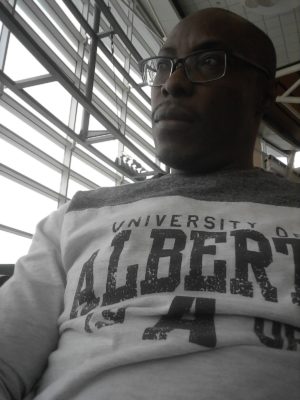 Uchechukwu Peter Umezurike is a PhD student at the department of English and Film Studies, University of Alberta. His research interests include postcolonial literatures, print culture, gender and sexuality studies. An Alumnus of the International Writing Program (USA), his work has appeared in several print anthologies such as On Broken Wings, Dream Chasers, Migrations, African Roar 2011, Daughters of Eve and Other Stories, Work in Progress & Other Stories, A Generation Defining Itself (Vol. 8),Weaverbird Collection, New Nigerian Writing, Water Testament, Calvacade, Author Africa, and Camouflage, etc.
Uchechukwu Peter Umezurike is a PhD student at the department of English and Film Studies, University of Alberta. His research interests include postcolonial literatures, print culture, gender and sexuality studies. An Alumnus of the International Writing Program (USA), his work has appeared in several print anthologies such as On Broken Wings, Dream Chasers, Migrations, African Roar 2011, Daughters of Eve and Other Stories, Work in Progress & Other Stories, A Generation Defining Itself (Vol. 8),Weaverbird Collection, New Nigerian Writing, Water Testament, Calvacade, Author Africa, and Camouflage, etc.


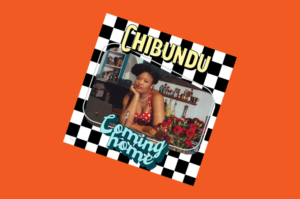
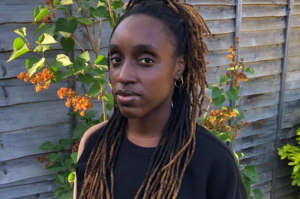


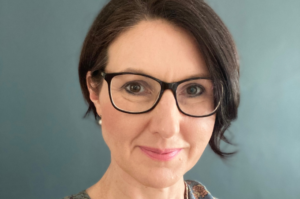


COMMENTS -
Reader Interactions